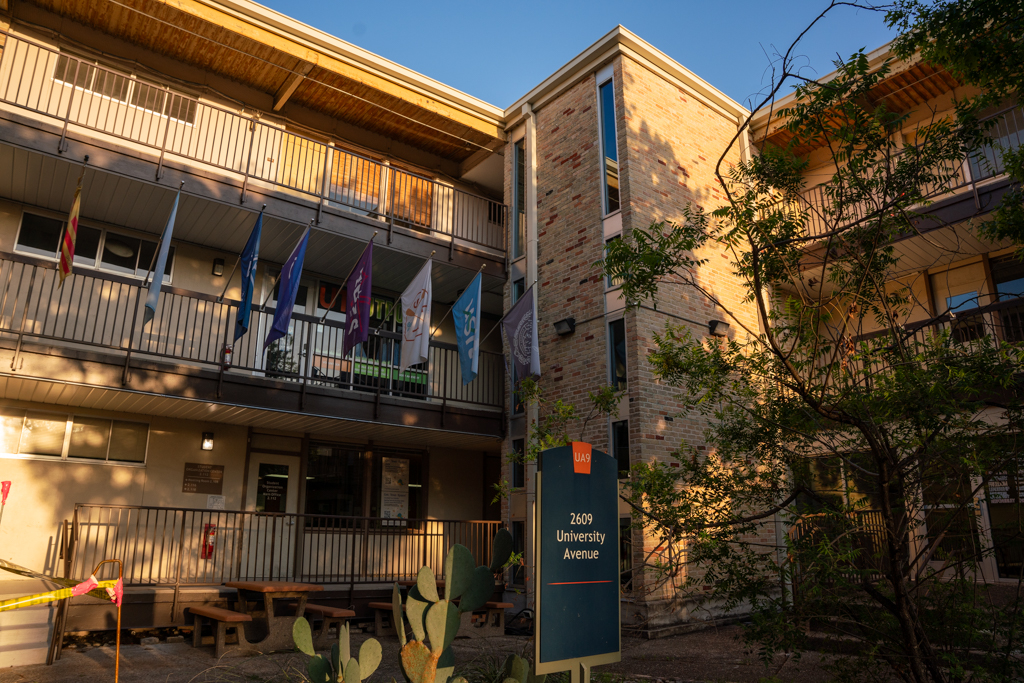A change in University Housing Department policy will require the residents of two University apartment complexes who live with family members to relocate. Roommates the University deems nonfamilial won’t be allowed to go with them.
The University apartments are currently reserved for families, graduate students and undergraduates with at least 30 hours of credit and in good standing at the University. The new policy designates Brackenridge as the only University apartment complex to allow families to live together. Residents currently living with family members in Colorado or Gateway will have to move into Brackenridge, and, under the new policy, all residents living in Colorado and Gateway Apartments must be University-affiliated. The University said it would provide a $500 credit to offset moving expenses.
In a letter sent via email on Monday, UHD defined family members to be “individuals who are related to the contract holder by marriage, dependency or some other form of recognized familial relationship.” It has since clarified this definition to include common law marriages, civil unions, domestic partnerships, informal marriages, fiancées, dependent minors, parents and siblings.
In the letter, UHD explained the changes would allow the department “to contract with approximately 190 more UT-Austin students than in previous years.”
Graduate Student Assembly President Samantha Fuchs said graduate students are frustrated with the policy, primarily due to the way it was rolled out. Residents were notified of the these changes, which will go into effect on July 1, on Monday, giving contract holders who want to live in family housing only two weeks to submit a signed affidavit attesting to the nature of their familial relationships by a deadline on March 22.
“Two weeks is too short of a timespan to consider all these changes,” Fuchs said. “Residents will have to make a decision about whether to stay or return.”
Giorgio Paulon, a statistics PhD student, moved into a two-bedroom apartment in UT’s Colorado building less than two weeks ago with his boyfriend. Paulon, who said he was on the apartment waitlist for two years, wanted to live in the Colorado Apartments because of its low cost and proximity to class and colleagues.
When they moved in, Paulon’s boyfriend was required to register with the University as a permanent resident. Even if their partnership was classified as a familial
relationship under the new University Housing Department policy, Paulon said he and his boyfriend would still be forced to go through the hassle of moving.
“Every person that I’ve talked to is against this,” Paulon said.
UHD has planned six community Q&A meetings to discuss the policy change. Only two of those meetings will occur before the deadline to complete the occupancy preference form. Both are during spring break.
Other policy changes include new occupancy limits, a rent increase and a reduction of the maximum contract term limit from seven to five years. Underpaid at UT will host a town hall meeting today from 3 to 5 p.m. to address all changes.





















